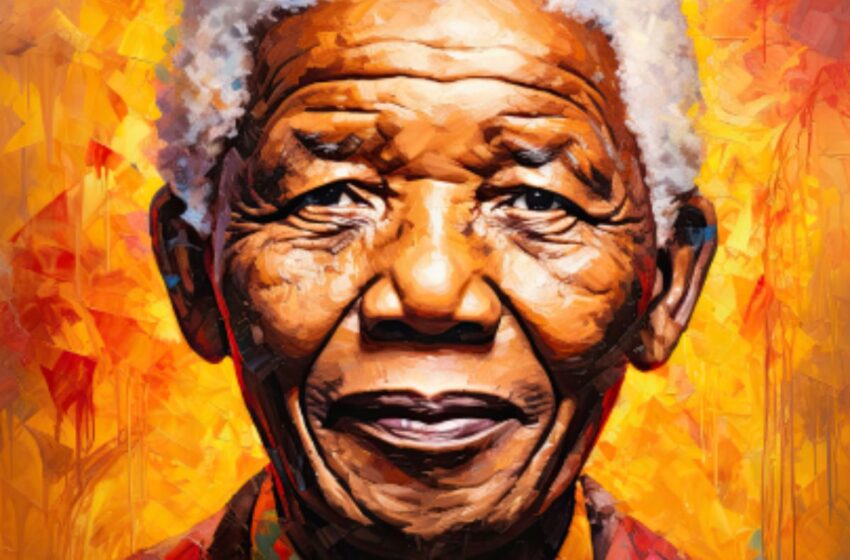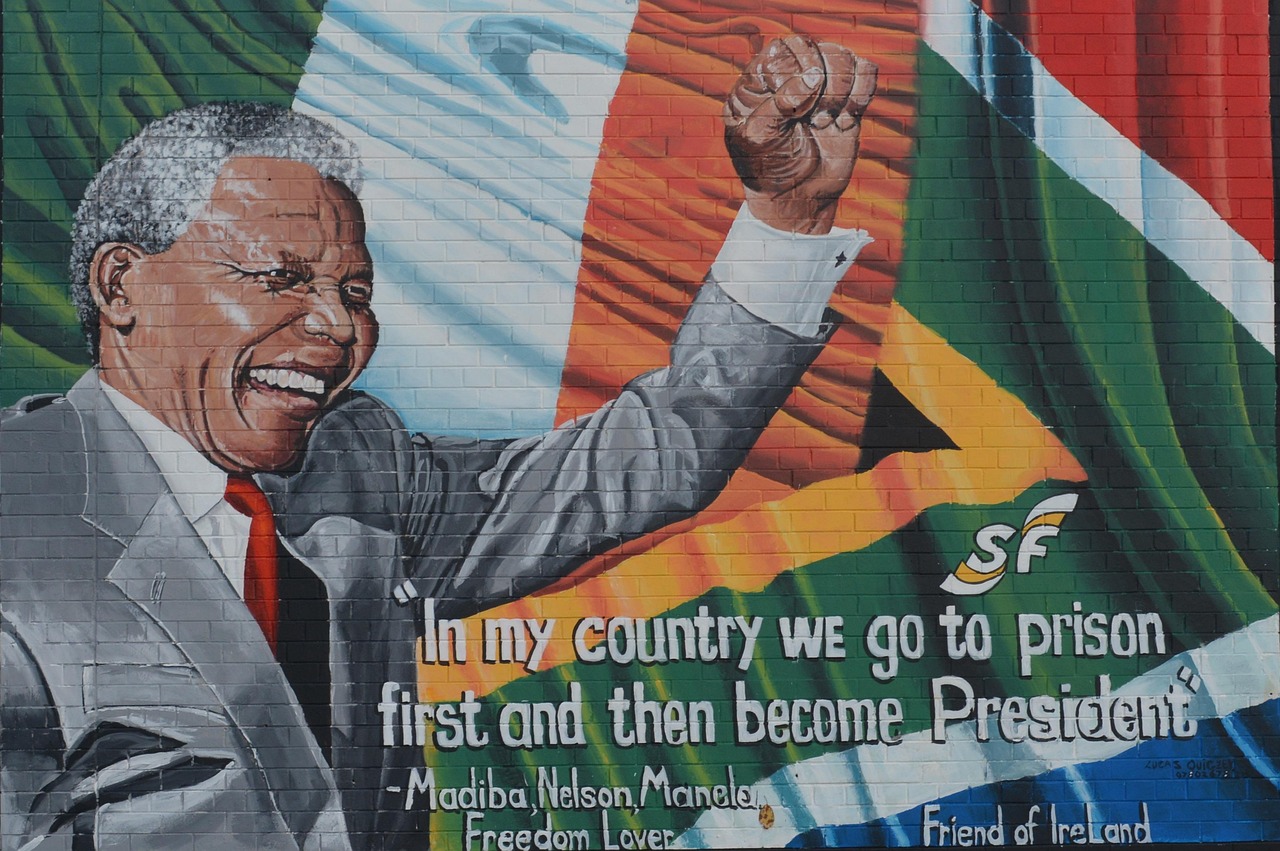10 reasons why South Africans love Nelson Mandela

Nelson Mandela
Nelson Rolihlahla Mandela, revered globally as Madiba, remains an unparalleled icon in the hearts and minds of South Africans. His name is not merely a historical footnote but a living testament to resilience, integrity, and the extraordinary capacity of the human spirit. The love South Africans hold for him is multifaceted, rooted deeply in the nation’s tumultuous past and its aspirations for the future. Here, we delve deeper into the ten core reasons for this enduring affection.
1. The Undisputed Architect of Liberation from Apartheid
This point cannot be overstated. For decades, South Africa groaned under the oppressive weight of apartheid, a state-sanctioned system of racial segregation and discrimination that permeated every aspect of life. Black South Africans were denied basic human rights, subjected to forced removals, inferior education, and brutal repression. Mandela, as the symbolic and often literal head of the anti-apartheid movement, particularly through the ANC’s armed wing, Umkhonto we Sizwe, embodied the nation’s desperate struggle for freedom. His 27 years of incarceration, spent in harsh conditions on Robben Island and later Pollsmoor and Victor Verster prisons, did not break his spirit; instead, it solidified his image as a martyr for justice. When he walked out of Victor Verster Prison on February 11, 1990, it was not just a man emerging, but the dawn of a new era for an entire nation. His release signalled the undeniable end of apartheid and the promise of a democratic future, a transformation he meticulously orchestrated.
2. The Courageous Champion of Reconciliation, Not Retribution
Perhaps Mandela’s most astonishing act of leadership was his steadfast commitment to reconciliation over revenge. Having suffered immense personal injustice and witnessed generations endure systemic oppression, the international community widely anticipated a period of retributive justice or even civil war. Instead, Mandela, with almost superhuman moral clarity, steered the nation towards healing. He championed the Truth and Reconciliation Commission (TRC), a groundbreaking initiative where victims could tell their stories and perpetrators could seek amnesty in exchange for truth. This audacious act of forgiveness was not born of naivety but a profound understanding that for a fractured society to heal, the cycle of violence and bitterness had to be broken. His example of forgiving his captors set an extraordinary precedent that resonated deeply with a population yearning for peace.
3. The Unifying Force for a Radically Divided Nation
Apartheid’s most insidious legacy was the deep societal fragmentation it engineered. Different racial groups were not just separated geographically but indoctrinated with prejudice and mistrust. Mandela systematically worked to dismantle these psychological barriers. His masterful use of symbols, such as donning the Springbok rugby jersey (a powerful emblem of white Afrikaner identity) during the 1995 Rugby World Cup, sent an unmistakable message: “We are one nation.” This act, captured in the film “Invictus,” was profoundly symbolic, bridging racial divides through the shared passion for sport. He understood that genuine unity required more than just laws; it demanded a change of heart and a shared national narrative. He showed South Africans, black and white, that their shared future was inextricably linked.
4. The Embodiment of Profound Sacrifice and Unbreakable Resilience
Mandela’s sacrifice is etched into the collective consciousness of South Africans. He lost his prime adult years, separated from his family and the world, all for a cause greater than himself. His resilience in the face of psychological torment and physical hardship in prison is a legendary testament to the human spirit. Stories from fellow prisoners often highlight his unwavering discipline, his commitment to education even behind bars, and his ability to maintain hope and dignity under the most dehumanising conditions. This unparalleled commitment and his refusal to compromise his principles even when offered early release on conditions solidified his image as a man of extraordinary character and unwavering resolve.

5. His Profound Humility and Endearing Approachability
Despite achieving global icon status, Nobel Peace Prize laureate, and becoming the first democratically elected president of a nation, Mandela remained remarkably humble. He eschewed ostentation, preferring simple living and genuine human connection. Countless anecdotes speak to his warmth, his readiness to listen, and his ability to connect with ordinary people from all walks of life, from rural villagers to world leaders. He was never aloof; instead, he cultivated an image of a benevolent grandfather figure, a “Madiba” who genuinely cared about the well-being of his “children” – the people of South Africa. This personal touch fostered immense affection and trust.
6. The Unwavering Advocate for Universal Human Rights and Equality
Beyond the dismantling of apartheid, Mandela’s vision extended to a truly just and equitable society where the rights and dignity of every individual were paramount. He was not just fighting for Black liberation but for the liberation of all South Africans from prejudice and discrimination. His leadership ensured that South Africa’s new constitution, a document widely celebrated globally, enshrined fundamental human rights for all its citizens, regardless of race, gender, religion, or sexual orientation. He firmly believed that true freedom meant the freedom of everyone, and he dedicated his life to establishing a society where this ideal could flourish.
7. His Global Recognition Elevates South Africa’s Stature
For decades under apartheid, South Africa was a pariah state, isolated and condemned by the international community. Mandela’s release and subsequent presidency fundamentally transformed this image. He became a beacon of hope, a global symbol of peaceful transition and the triumph of justice. His numerous international awards, speeches at the UN, and his presence on the world stage brought immense pride to South Africans. He literally put South Africa back on the map, transforming it from a symbol of oppression into a beacon of democratic possibility. This elevation of national prestige fostered a deep sense of gratitude and honour amongst its citizens.
8. The Guiding Hand in Establishing a Progressive Democratic Constitution
As the inaugural president of democratic South Africa, Mandela oversaw the drafting and adoption of one of the world’s most lauded and progressive constitutions. This document, crafted through an inclusive and participatory process, is not merely a legal text but a foundational social contract. It guarantees a wide range of socio-economic rights, establishes independent judicial institutions, and ensures checks and balances. Mandela’s leadership was crucial in ensuring this constitution would serve as a robust framework for a truly democratic and rights-based society, a lasting legacy that continues to protect and guide the nation.
9. The Enduring and Potent Symbol of Hope and Triumph over Adversity
Mandela’s life story is the quintessential narrative of triumph over adversity. From humble beginnings in Qunu, through years of persecution and imprisonment, to leading a nation, his journey is a powerful testament to the human capacity for hope even in the darkest times. For South Africans, especially those who experienced the brutality of apartheid, he remains a living symbol that even the most deeply entrenched injustices can be overcome through perseverance, principled leadership, and collective action. He offered proof that change is possible.
10. His Living Legacy Continues to Inspire Action and Conscience
Mandela’s influence extends far beyond his lifetime. His principles of non-racialism, social justice, equality, and dialogue continue to inspire individuals, civil society organisations, and political movements not just in South Africa but globally. His call to action, “It always seems impossible until it’s done,” resonates with those battling new forms of injustice and inequality. In South Africa, discussions around land reform, economic inequality, and social cohesion often invoke his vision, urging the nation to live up to the ideals he fought for. He remains the moral conscience of the nation, a constant reminder of the potential for good that lies within humanity. For more information, visit the Nelson Mandela Foundation.
In conclusion, the love South Africans hold for Nelson Mandela is not merely admiration for a historical figure; it is a profound emotional bond with the man who personified their struggle, embodied their highest aspirations, and ultimately delivered them to freedom. He is more than just a former president; he is the architect of their present, the moral compass for their future, and the eternal symbol of a nation’s enduring spirit.

